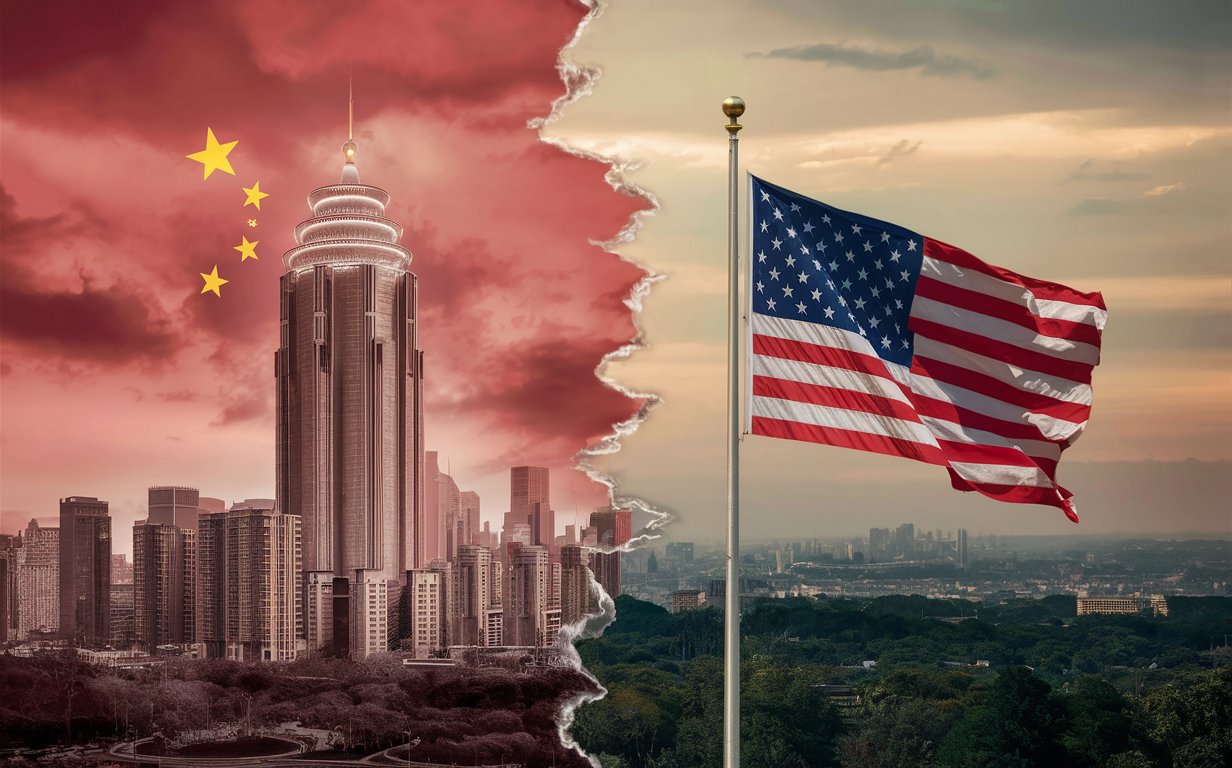China
President of Pakistan to Visit China from 16-17 March 2020 on Official Invitation from Chinese Counterpart
At the invitation of President Xi Jinping of the People’s Republic of China, President Dr. Arif Alvi will be visiting China from 16-17 March 2020. The President will be accompanied by a delegation including the Foreign Minister, Minister for Planning, Development and Special Initiatives and senior officials. The President will meet with President Xi Jinping and other Chinese leaders.
A number of MoUs are expected to be signed. This will be the President’s first visit to China, which is singularly aimed at conveying strong support and solidarity of Pakistan towards the Government and the people of China while Beijing was resolutely engaged in efforts to contain and deal with the spread of Covid-19. The visit will play an important role in further solidifying the historic bonds of trust and mutual support between the two “iron brothers”.
It will also serve as an opportunity for the leadership of the two countries to review bilateral, regional and international issues and to advance the shared goals of promoting peace, prosperity and development in the region and beyond. Pakistan and China are the closest friends and staunch partners. The two countries are joined together in an “All-Weather Strategic Cooperative Partnership.”
This time-tested friendship is based on unparalleled mutual trust, understanding and commonality of interests. The leadership of both countries is fully committed to building closer China-Pakistan Community of Shared Future in the New Era.
Analysis
Understanding China’s Alternative Order and Lessons for America

The vision of Chinese President Xi Jinping for a new global order is reshaping international dynamics. This agenda seeks to challenge traditional Western dominance and establish a multipolar system based on Chinese principles. As China works towards redefining global institutions, norms, and power structures, it prompts a critical examination of the implications for the United States and the international community. This is especially important in today’s rapidly evolving global landscape.

Table of Contents
China’s Vision for a New World Order
President Xi Jinping’s vision for a new global order is rooted in the idea of a “community with a shared future for mankind.” This vision encompasses key initiatives such as the Belt and Road Initiative, the Global Development Initiative, the Global Security Initiative, and the Global Civilization Initiative. By promoting common security, economic development, and state-determined political rights, China seeks to position itself as a central player in shaping the future of international relations.
Assessing China’s Progress and Challenges
While China’s aspirations for global leadership are evident, the effectiveness of its strategies and the reception from the international community are subject to scrutiny. Despite Beijing’s efforts to expand its influence, there are indications of setbacks and resistance. China’s assertive diplomatic approach, characterized by the “Wolf Warrior” style, has raised concerns and alienated potential allies. Additionally, economic challenges and growing scepticism towards China’s intentions have hindered its quest for global acceptance.
Lessons for America
As China’s alternative order gains momentum, the United States must reassess its approach to international relations and global leadership. By understanding the motivations behind China’s initiatives and the responses they elicit, America can adapt its strategies to navigate this evolving geopolitical landscape effectively. Embracing a nuanced perspective that acknowledges both China’s ambitions and limitations can inform a more constructive engagement with Beijing and the broader international community.
Real-Time Data and Analysis
Recent data from the 2023 Pew Research Center study highlights the global perceptions of China and the United States. While China faces challenges in garnering favourable opinions and trust internationally, the United States maintains a stronger reputation for contributing to peace and stability. These findings underscore the importance of reputation, diplomacy, and soft power in shaping global perceptions and alliances.
Conclusion
In conclusion, China’s pursuit of an alternative world order presents both opportunities and challenges for the international community, including the United States. By critically examining China’s ambitions, successes, and setbacks, America can glean valuable insights for refining its own foreign policy and strategic priorities. As the global landscape continues to evolve, understanding China’s role and impact is essential for navigating the complexities of contemporary international relations.
China
China’s Sinking Cities: The Looming Crisis of Subsidence and Rising Sea Levels

Introduction
China’s coastal cities, home to over 400 million people, are facing a dual threat of subsidence and rising sea levels, according to a recent study. The study, published in the journal Science, found that a quarter of China’s coastal land will sink below sea level within a century, putting millions of lives and trillions of dollars in infrastructure at risk.
Subsidence and Sea Level Rise
Subsidence, or the sinking of the land, is a natural process that occurs when the ground settles or compacts over time. However, in China’s coastal cities, the process is being accelerated by human activities, such as the over-extraction of groundwater and the weight of buildings.
The study, conducted by researchers from the Chinese Academy of Sciences and the University of California, Berkeley, analyzed satellite data and found that the rate of subsidence in China’s coastal cities has increased by up to 50% in the past decade. The researchers also found that the subsidence is linked to changes in groundwater levels and the weight of buildings.
At the same time, sea levels are also rising due to climate change. According to the National Oceanic and Atmospheric Administration (NOAA), sea levels have risen by about 3.3 millimetres per year over the past 25 years. In China’s coastal cities, the combination of subsidence and sea level rise is creating a crisis that is only expected to worsen in the coming decades.
Impact on Coastal Cities
The impact of subsidence and sea level rise on China’s coastal cities is already being felt. In Shanghai, the city’s iconic Bund waterfront has sunk by up to 2.6 meters over the past century, while in Tianjin, the city’s central business district has sunk by up to 2.5 meters.
The subsidence is causing a range of problems, from increased flooding to damage to buildings and infrastructure. In some areas, the subsidence has caused roads and buildings to crack, while in other areas, it has led to the flooding of entire neighbourhoods.
The cost of addressing the subsidence and sea level rise crisis in China’s coastal cities is estimated to be in the trillions of dollars. The Chinese government has already spent billions of dollars on measures such as building sea walls and pumping sand onto eroding beaches. However, these measures are only a temporary solution and do not address the root causes of the subsidence.
Expert Opinions
Experts warn that the subsidence and sea level rise crisis in China’s coastal cities is a ticking time bomb. “The situation is very serious and requires urgent action,” said Dr. Xiaojun Yin, a researcher at the Chinese Academy of Sciences and one of the authors of the study. “We need to reduce the extraction of groundwater and find ways to reduce the weight of buildings.”
Dr. Robert Nicholls, a professor of coastal engineering at the University of Southampton, agrees. “China’s coastal cities are facing a perfect storm of subsidence and sea level rise,” he said. “The Chinese government needs to take urgent action to address the root causes of the subsidence and invest in long-term solutions to protect its coastal cities.”
Conclusion
China’s coastal cities are facing a crisis of subsidence and sea level rise that is only expected to worsen in the coming decades. The crisis is being driven by human activities, such as the over-extraction of groundwater and the weight of buildings. The Chinese government needs to take urgent action to address the root causes of the subsidence and invest in long-term solutions to protect its coastal cities.
The cost of addressing the crisis is estimated to be in the trillions of dollars, but the cost of inaction is likely to be much higher. Millions of lives and trillions of dollars in infrastructure are at risk. The Chinese government must act now to prevent a catastrophic flood from engulfing its coastal cities.
China
German leader’s China trip criticised for prioritising business interests over Brussels’ de-risking agenda

German Chancellor Angela Merkel’s recent trip to China has sparked controversy and criticism. Many are unhappy with her apparent prioritisation of German business interests over supporting Brussels’ de-risking agenda. In public remarks during the trip, Merkel did not voice support for the EU’s efforts to limit economic dependence on China, instead focusing on promoting German businesses and their interests in the country.

Some have called Merkel’s approach a “disaster” and “regrettable”, arguing that it sends the wrong message to China and undermines the EU’s efforts to reduce its economic reliance on the country. Critics have accused Merkel of prioritising short-term economic gains over long-term strategic interests, and of failing to adequately address issues such as human rights abuses in China.
The controversy surrounding Merkel’s China trip highlights the complex relationship between Europe and China, and the challenges facing the EU as it seeks to balance economic interests with strategic concerns. As tensions between the US and China continue to escalate, the EU faces pressure to take a more assertive stance on issues such as trade, human rights, and security.
Table of Contents
Chancellor’s Controversial China Visit

Criticism of German Leader
German Chancellor’s recent visit to China has been met with criticism from some quarters. Critics have accused the Chancellor of prioritizing German business interests over the de-risking agenda of Brussels. In her public remarks in China, the Chancellor did not throw her support behind the European Union’s agenda of reducing risks associated with China’s Belt and Road Initiative.
The critics have argued that the Chancellor’s visit was a missed opportunity to promote the interests of the European Union. They have raised concerns that the Chancellor’s focus on German business interests could undermine the EU’s efforts to address the risks associated with China’s Belt and Road Initiative.
Focus on Business Interests
During her visit to China, the Chancellor focused primarily on promoting German business interests. She led a delegation of German business leaders to China and signed several trade agreements.
The Chancellor’s focus on business interests has been praised by some as a pragmatic approach to promoting German economic growth. However, others have criticized her for ignoring the EU’s de-risking agenda and failing to promote a united front against China’s Belt and Road Initiative.
Overall, the Chancellor’s visit to China has been a subject of controversy. While some have praised her for promoting German business interests, others have criticized her for failing to support the EU’s de-risking agenda.
EU De-Risking Agenda and German Stance

Lack of Support for Brussels
During her recent trip to China, German Chancellor Angela Merkel did not throw her support behind the European Union’s (EU) de-risking agenda. This agenda aims to reduce the EU’s dependence on China and mitigate the risks associated with economic engagement with the country. Merkel’s lack of support for this agenda has drawn criticism from some quarters.
The de-risking agenda was introduced in response to concerns about China’s human rights record, as well as its economic practices, such as the theft of intellectual property. The EU aims to reduce its dependence on China by diversifying its economic partnerships and investing in domestic industries. Merkel’s failure to endorse this agenda has raised questions about Germany’s commitment to the EU’s broader goals.
Implications for EU-China Relations
Merkel’s focus on German business interests during her trip to China has been seen as a sign of Germany’s increasing economic dependence on China. This has raised concerns about the potential implications for EU-China relations. Some experts have suggested that Merkel’s stance could undermine the EU’s efforts to present a united front on issues such as trade and human rights.
Moreover, Merkel’s failure to support the EU’s de-risking agenda could make it more difficult for the EU to negotiate with China on issues such as market access and intellectual property protection. This could have negative implications for both the EU and Germany, as China is an important market for German businesses.
In conclusion, Merkel’s lack of support for the EU’s de-risking agenda and her focus on German business interests during her recent trip to China have raised questions about Germany’s commitment to the EU’s broader goals. This could have negative implications for EU-China relations and make it more difficult for the EU to negotiate with China on key issues.
Reactions and Consequences

Domestic Response
The German Chancellor’s China trip has drawn criticism from various domestic quarters. Critics have accused the Chancellor of prioritizing German business interests over the EU’s de-risking agenda. The opposition parties have been particularly vocal in their criticism, with some accusing the Chancellor of undermining EU unity.
The SPD, the junior partner in the governing coalition, has called for an urgent debate in the Bundestag to discuss the Chancellor’s China trip. The party’s leader, Saskia Esken, has said that the Chancellor’s remarks in China are “regrettable” and that they do not reflect the EU’s position on China.
International Perspective
The Chancellor’s China trip has also raised concerns among Germany’s EU partners. Some EU officials have expressed disappointment that the Chancellor did not use her visit to throw her support behind Brussels’ de-risking agenda. They have also expressed concern that the Chancellor’s focus on German business interests could undermine the EU’s collective approach to China.
The French President, Emmanuel Macron, has been particularly critical of the Chancellor’s China trip. In a recent interview, he called on Germany to show more solidarity with its EU partners on China. He also criticized the Chancellor for not taking a tougher stance on human rights issues in China.
Overall, the Chancellor’s China trip has sparked a heated debate in Germany and the EU. While some have praised the Chancellor for promoting German business interests, others have criticized her for undermining EU unity and failing to support Brussels’ de-risking agenda.
-

 Featured3 years ago
Featured3 years agoThe Right-Wing Politics in United States & The Capitol Hill Mayhem
-

 Elections 20242 months ago
Elections 20242 months agoAnalyzing Trump’s Super Tuesday Triumph and Nikki Haley’s Strategic Moves
-

 News2 years ago
News2 years agoPrioritizing health & education most effective way to improve socio-economic status: President
-

 China3 years ago
China3 years agoCoronavirus Pandemic and Global Response
-

 Canada3 years ago
Canada3 years agoSocio-Economic Implications of Canadian Border Closure With U.S
-

 Conflict3 years ago
Conflict3 years agoKashmir Lockdown, UNGA & Thereafter
-

 Democracy3 years ago
Democracy3 years agoMissing You! SPSC
-

 Democracy3 years ago
Democracy3 years agoPresident Dr Arif Alvi Confers Civil Awards on Independence Day

























